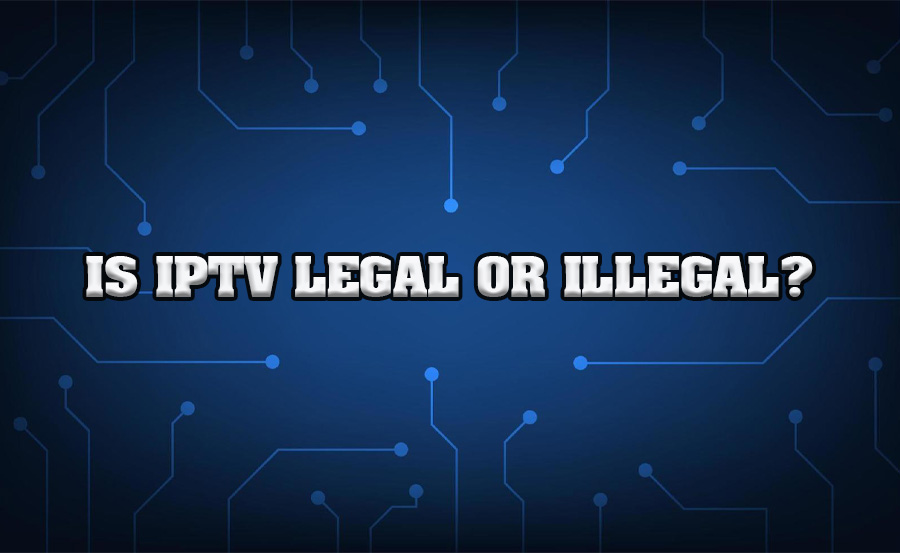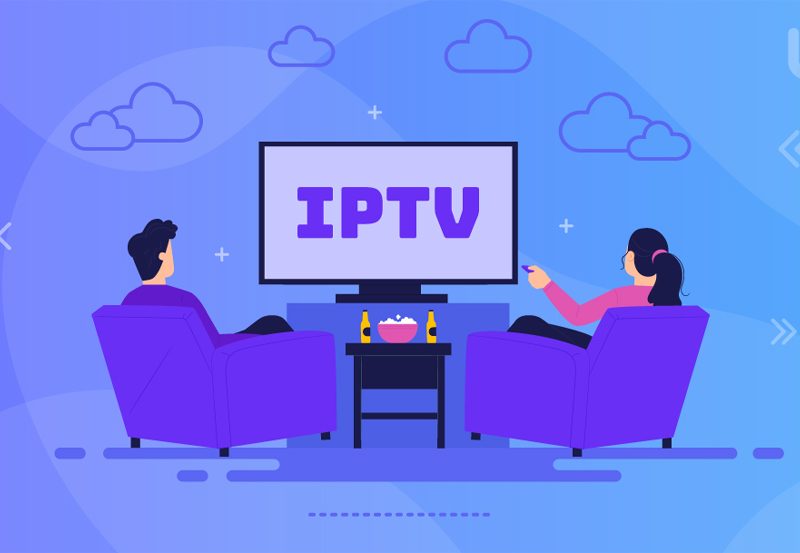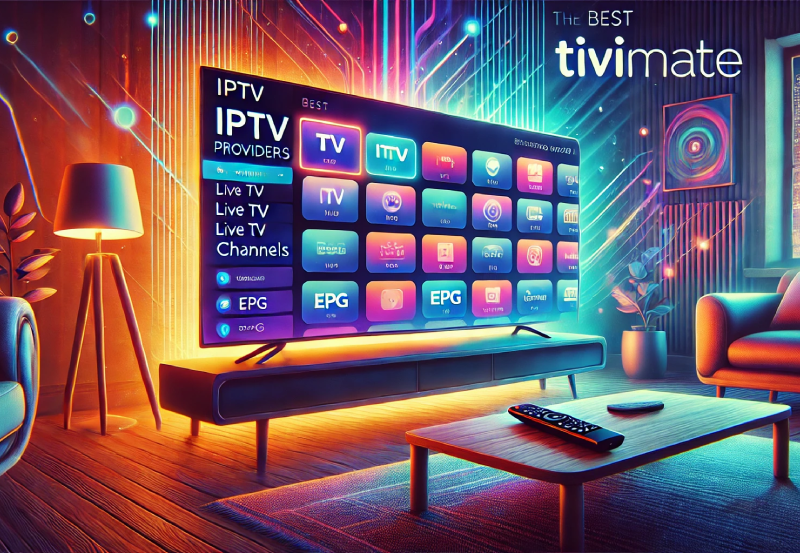IPTV (Internet Protocol Television) and cable TV are distinct methods of delivering television content. Cable TV utilizes traditional coaxial cables, while IPTV transmits content via the internet using IP technology. The primary distinction lies in content delivery: cable TV broadcasts in real-time, limiting viewers to currently airing programs, whereas IPTV enables on-demand viewing from the service’s content library.
Buy 1 Year IPTV Subscription Now
Access methods also differ between the two systems. Cable TV typically requires a set-top box and physical cable connection. In contrast, IPTV can be accessed through various devices, including smart TVs, streaming devices, smartphones, and tablets, offering greater flexibility for viewers.
IPTV often provides advanced features not commonly found in traditional cable TV services. These may include interactive programming guides, extensive video-on-demand libraries, and the ability to record and pause live TV. The flexibility and additional features of IPTV make it an increasingly popular choice for consumers seeking a more versatile television viewing experience.
Key Takeaways
- IPTV offers on-demand and live streaming content over the internet, while cable TV uses traditional cable infrastructure for broadcasting.
- IPTV operates in a legal gray area, with some services violating copyright laws, so it’s important to navigate copyright laws when using IPTV.
- Streaming services offer a wide range of content, including movies, TV shows, and original programming, and can be accessed through various devices.
- Internet speed directly affects the quality of IPTV streaming, with higher speeds providing better picture and sound quality.
- Data caps can limit the amount of IPTV content you can stream, so it’s important to consider your data usage when using IPTV services.
- Copyright infringement through IPTV can lead to legal consequences, including fines and potential criminal charges.
- There are legal alternatives to IPTV, such as subscribing to licensed streaming services or using digital antennas for live TV.
Copyright Concerns
IPTV services often raise concerns about their legality, particularly when it comes to copyright laws. These services typically offer access to a wide range of television channels and on-demand content, much of which is copyrighted. However, many IPTV providers do not have the necessary licensing agreements in place to distribute this content legally.
Legal Issues for Providers and Users
This lack of proper licensing has led to numerous legal issues for both IPTV providers and users. It’s essential to note that not all IPTV services are illegal. There are legitimate IPTV providers that have secured the necessary licensing agreements to distribute content legally.
Avoiding Illegal IPTV Services
However, there are also many illegal IPTV services that offer access to copyrighted content without permission. Using these illegal services can put users at risk of legal action, including fines and even criminal charges. It’s crucial for consumers to do their due diligence and ensure that they are using a legal IPTV service that has the proper licensing agreements in place.
Streaming Services: What You Need to Know
Streaming services have become increasingly popular in recent years, offering consumers a wide range of options for accessing television and movie content. These services, such as Netflix, Hulu, and Amazon Prime Video, allow users to stream content over the internet without the need for traditional cable or satellite TV subscriptions. One of the key benefits of streaming services is the ability to access a large library of content on-demand, meaning that users can watch what they want, when they want.
In addition to on-demand content, many streaming services also offer original programming that is exclusive to their platform. This has led to a surge in high-quality original content being produced by streaming services, making them a compelling option for consumers who are looking for new and unique programming. Another benefit of streaming services is the ability to access content on a wide range of devices, including smart TVs, streaming devices, smartphones, and tablets.
This makes it easy for users to watch their favorite shows and movies at home or on the go.
Internet Speed: How It Affects IPTV
Internet speed plays a crucial role in the quality of IPTV service. The speed of your internet connection directly impacts the quality of the video stream you receive. For standard definition (SD) video quality, a minimum internet speed of 3 Mbps is recommended.
For high definition (HD) video quality, a minimum internet speed of 5 Mbps is recommended. If you want to stream 4K content, you will need an internet speed of at least 25 Mbps. A slow internet connection can result in buffering issues, low-quality video, and interruptions in your viewing experience.
To ensure a smooth and uninterrupted IPTV experience, it’s important to have a reliable and fast internet connection. If you are experiencing issues with your IPTV service, it’s worth checking your internet speed to ensure that it meets the recommended minimums for the quality of video you are trying to stream.
Data Cap: How It Impacts IPTV Usage
Many internet service providers impose data caps on their customers’ internet usage. A data cap is a limit on the amount of data that a customer can use within a given billing cycle. If you exceed your data cap, you may be charged overage fees or have your internet speed throttled.
Data caps can have a significant impact on IPTV usage, particularly for those who regularly stream high-definition or 4K content. Streaming video content consumes a large amount of data, especially at higher resolutions. For example, streaming one hour of HD video can consume up to 3 GB of data, while streaming one hour of 4K video can consume up to 7 GB of data.
If you have a data cap on your internet plan, it’s important to monitor your usage and adjust your streaming habits accordingly to avoid exceeding your cap and incurring additional charges.
The Dangers of Copyright Infringement
Copyright infringement is a serious issue when it comes to IPTV usage. Many illegal IPTV services offer access to copyrighted content without the proper licensing agreements in place. Using these services puts users at risk of legal action from copyright holders.
Consequences of Illegal IPTV Use
Copyright holders have been known to take legal action against both IPTV providers and users who access copyrighted content without permission. The consequences of copyright infringement can be severe, including fines, legal fees, and even criminal charges in some cases.
Protecting Yourself with Legal IPTV Services
It’s important for consumers to be aware of the risks associated with using illegal IPTV services and to ensure that they are using a legal service that has the proper licensing agreements in place. By using legal IPTV services, consumers can enjoy access to a wide range of television content without putting themselves at risk of legal action.
Legal Alternatives to IPTV: Exploring Licensed Options
For those who want to access television content legally, there are a number of licensed alternatives to illegal IPTV services. Many traditional cable and satellite IPTV providers offer streaming options that allow customers to access their content over the internet without the need for a physical cable connection. Additionally, there are a growing number of streaming services that offer access to live TV channels and on-demand content through licensing agreements with content providers.
In addition to traditional TV providers and streaming services, there are also a number of standalone apps and websites that offer access to licensed television content. These apps and websites often require a subscription fee but offer access to a wide range of live TV channels and on-demand content through legal licensing agreements. By exploring these licensed alternatives to illegal IPTV services, consumers can enjoy access to their favorite television content without putting themselves at risk of legal action for copyright infringement.
If you’re interested in learning more about the legal aspects of IPTV and understanding copyright laws, you may want to check out this article on What Is IPTV. This article delves into the legality of IPTV and provides insights into how copyright laws apply to this technology. Understanding the legal implications of IPTV is crucial for both providers and users to ensure compliance with copyright regulations.





